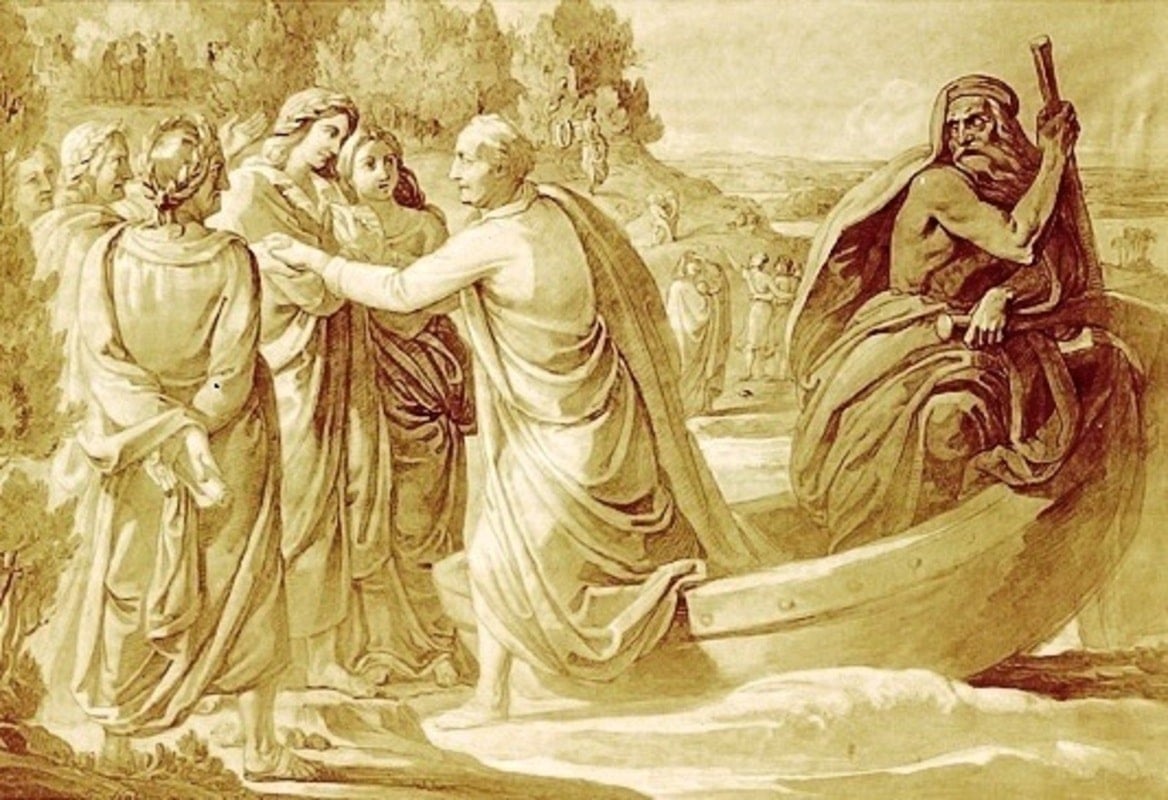

The concept of life after death was something common to virtually all ancient cultures. However, the nature of this supposed afterlife often differed significantly between regions. It is interesting to note that the ancient Celtic concept of the afterlife is essentially the same as one of the concepts from Greek mythology. Is it possible that this Celtic concept actually came from what Greek mythology said about the afterlife?
Greek mythology did not speak of just one single afterlife. Rather, there were multiple types. For example, Greek heroes would supposedly go to the Isles of the Blessed after death. Homer referred to this concept when he mentioned Elysium, in the West, in the Odyssey, but it was Hesiod who properly explained the subject.
According to Hesiod, the Isles of the Blessed were just next to Oceanus, the world-encircling river, and were ruled over by Cronus. Life on these islands was like a paradise. Hesiod specifically notes that the heroes who went there were “untouched by sorrow.” In other words, there was no sadness on the Isles of the Blessed.
In the Odyssey, Homer describes the journey to this afterlife. He wrote:
“They went, past the streams of Ocean, and the White Rock [that is, Lefkada],
and past the gates of the Sun, and the kingdom of dreams,
they went. They came down quickly to an asphodel meadow,
where souls, phantoms of those who’ve toiled, abide.”
In other words, the souls of heroes would be taken on a boat to this mythical, paradise island in the West.
Now that we have seen what the ancient Greeks believed, what about the ancient Celts? Did the Celts have a concept of the afterlife comparable to the Greek belief? We know much less about ancient Celtic beliefs than we do about Greek beliefs. This is because the pre-Christian Celts left no works of literature comparable to ancient Greek mythological writings.
Nevertheless, evidence from medieval Celtic mythology can provide clues as to what the Celts believed in the pre-Christian era. For example, there are various Welsh sources that are useful for this, like the Mabinogion and certain poems. These sources indicate that the Celts did believe that the afterlife was on an island to the West.
However, a clearer source is Procopius, the sixth-century Byzantine historian. Regarding Britain, he wrote that it was believed that the souls of the dead were transported by boat over to this island. This was evidently the belief of the Celts on the continent, who did not live in Britain.
The Celts of Britain itself apparently viewed the island of the dead as being a separate island over to the West, as indicated by insular mythological texts.
As we can see, both the ancient Greeks and the ancient Celts had a concept of an afterlife in which the souls of at least some of the dead would be transported by boat to a special island. While we do not know the details of the Celtic afterlife, we can see that the two were broadly similar.
This is interesting in view of the fact that this was not a very common concept in the ancient world. Could there have been some connection between the Celts and the Greeks in the distant past that allowed these concepts to be shared between them?
As it happens, early Celtic history saw the emergence of the La Tene culture. The primary characteristic of this Celtic culture was its adoption and adaptation of Mediterranean motifs. In particular, the Celts of this period were heavily influenced by the Etruscans, who were themselves heavily influenced by the Greeks.
There was also some direct Greek influence in this era. Around the year 600 BCE, about a century before the La Tene culture emerged, the Greeks founded the colony of Massalia in southern Gaul, the land of the Celts. Archaeology has revealed extensive trade between the Celtic elite class and the Greeks throughout the following century.
It is entirely possible that this contact with the Greeks may have influenced Celtic religious thought. This may be the reason why the Celts had such a similar concept of the afterlife to that found in Greek mythology. However, it is likely that this was especially due to the even closer association with the Etruscans.
